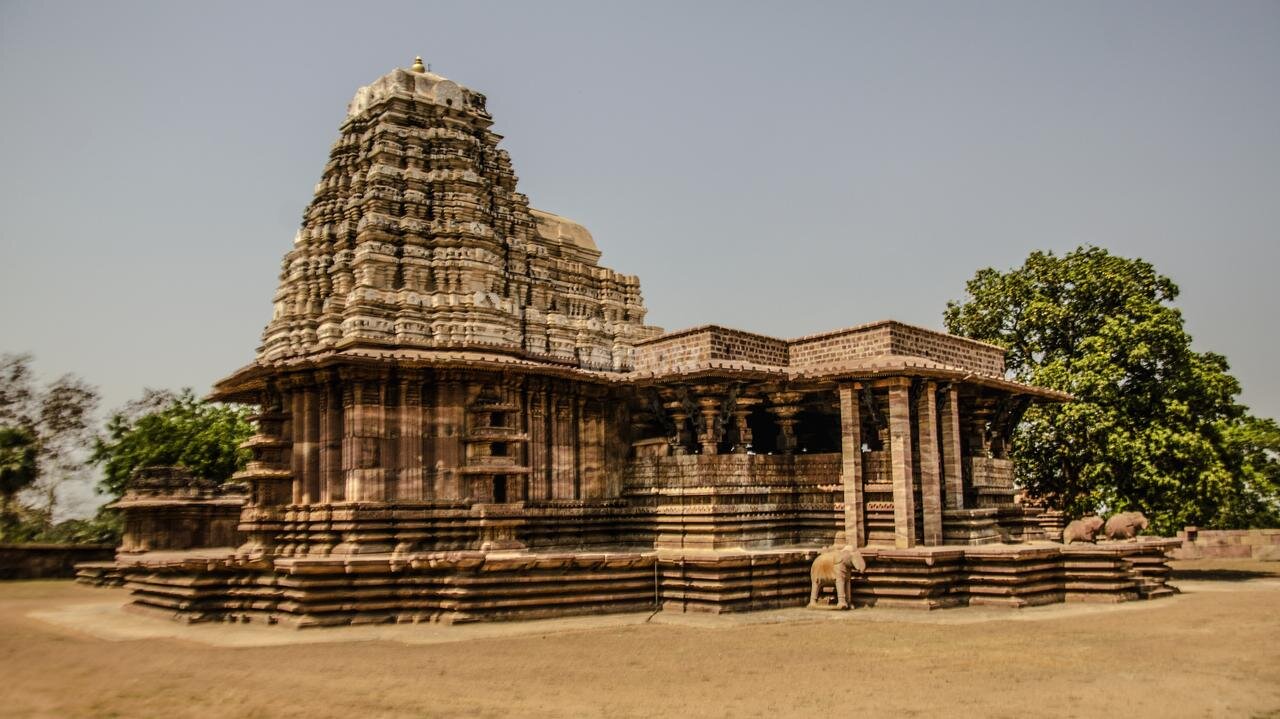Important Facts For Prelims
Important Facts For Prelims (3rd April 2019)
- 03 Apr 2019
- 7 min read
Danda Nata festival
- It is a 21-day long seasonal folk dance festival that is celebrated in South Odisha.
- It is celebrated in the month of 'Chaitra'.
- Danda as the name implies, is self-inflicted pain, which the danduas (people who participate in the festival) undergo to pay their obeisance to the lord Kali. It is also a form of worshipping the lord Shiva and his consort Parvati.
- The festival features midday summer dances in the dust and that in the ponds in the evening, besides midnight walk on fire by the ‘danduas’.
- Households and localities also invite Danduas for performance in their areas.
- The origin of the festival is generally traced to 8th and 9th AD after the decadence of Buddhism in Orissa.
Ramappa Temple
- Dedicated to Lord Shiva, it is situated in Palampet Village, around 67 km from the city of Warangal (Telangana).
- Also famous as Ramalingeshwara Temple, it was built under the supervision of Chief Commander Recherla Rudra, during the reign of Ganapati Deva from Kakatiya dynasty in 1213 century AD.
- Kakatiya Dynasty was the South Indian dynasty that ruled Andhra Pradesh in India from 1083 CE to 1323 CE.
- The temple has its name after its sculptor, Ramappa.
- It falls under the protection of the Kakatiya Heritage Trust (KHT), that has been pushing it for the World Heritage tag since 2012.
- For the year 2019, it is the only nomination for the World Heritage Site selection process, from India.
UNESCO's World Heritage Sites
- The United Nations Educational, Scientific and Cultural Organization (UNESCO) seeks to encourage the identification, protection and preservation of cultural and natural heritage around the world considered to be of outstanding value to humanity.
- This is embodied in an international treaty called the Convention concerning the Protection of the World Cultural and Natural Heritage, adopted by UNESCO in 1972.
- The World Heritage Fund provides about US$4 million annually to support activities to preserve monuments that require international assistance.
- The World Heritage Committee allocates funds according to the urgency of requests, priority being given to the most threatened sites.
WhatsApp’s Tipline
- Facebook-owned messaging platform WhatsApp, has launched a fact-checking Tipline for users in India ahead of elections in the country.
- People in India, now can submit uncertain information or rumours they have received to the Checkpoint Tipline on WhatsApp +91-9643-000-888.
- WhatsApp is working with India-based media skilling startup PROTO for the helpline.
- When a WhatsApp user will share a suspicious message with the tipline, PROTO’s verification center will seek to respond and inform the user if the claim made in message shared is verified or not.
- The center can review rumours in the form of pictures, video links or text and will cover four regional languages including Hindi, Telugu, Bengali and Malayalam, other than English.
Ways and Means Advances
- Recently the Reserve Bank of India has increased the limits for Ways and Means Advances (WMA) for the first half of financial year 2019-20.
- It is a temporary loan facility provided by RBI to meet temporary mismatches in the receipts and payments of the central and state government.
- It was introduced on April 1, 1997.This facility can be availed by the government if it needs immediate cash from the RBI.
- The WMA is to be vacated after 90 days.
- Interest rate for WMA is charged at the repo rate.
- The limit for WMA are mutually decided by the RBI and the Government of India.
Centre for Cellular & Molecular Biology
- Recently, the scientists at the Centre for Cellular & Molecular Biology (CCMB) have come up with a way to inhibit the multiplication of bacteria even before the cell wall begins to grow.
- They have discovered a new enzyme which helps in breaking cell walls of bacteria. The finding is significant for it offers a potential for a new drug delivery route to arrest the anti-bacterial resistance through existing antibiotic drugs.
- Regular antibiotics target the machinery that creates the bacterial cell wall — a mesh-like structure that is made up of cross-linked sugars and peptides.
- However, this experiment shows how to target cell-wall formation at the beginning itself, earlier than when the present set of antibiotics act.
- With rapid rise of antibiotic resistance, researchers across the world are exploring new ways to target bacteria. In this context, the new findings can play a crucial role in fighting the battle against antibiotic resistance.
Centre for Cellular & Molecular Biology
- The Centre for Cellular & Molecular Biology (CCMB) is a premier research organization which conducts high quality basic research and training in frontier areas of modern biology, and promote centralized national facilities for new and modern techniques in the interdisciplinary areas of biology.
- It was set up initially as a semi-autonomous Centre on April 1, 1977 with the Biochemistry Division of the then Regional Research Laboratory (presently, Indian Institute of Chemical Technology, IICT) Hyderabad.
- During 1981-82, the CCMB was accorded the status of a full-fledged national laboratory with its own Executive Committee and Scientific Advisory Council.
- It is located in Hyderabad and operates under the aegis of the Council of Scientific and Industrial Research.
- It is designated as "Center of Excellence" by the Global Molecular and Cell Biology Network, UNESCO.




